Czesław Eugeniusz Blicharski
Former Polish Air Force 300 Squadron pilot
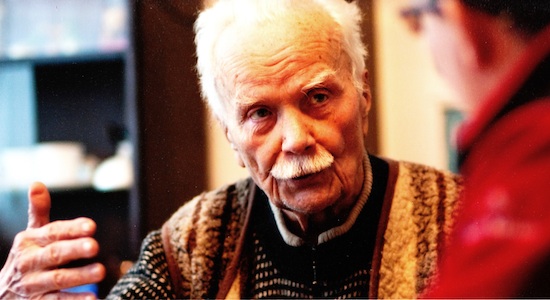
Czesław Eugeniusz Blicharski taken in October 2010 (Courtesy Karol Kubiak)
Czesław Eugeniusz Blicharski was born on 5th July 1918 in Tarnopol, Poland.
One of four sons of Michal and Zuzanna Blicharski. In 1928 he graduated primary school in Tarnopol. In 1936 Czeslaw E.Blicharski graudated high school also in Tarnopol. In the meantime he was a member of the local Boy Scout troop. In 1936 Czeslaw E.Blicharski started studying of law at Lwow’s University. During this time he was a member of the right wing Mlodziez Wszechpolska (All Polish Youth Orginization)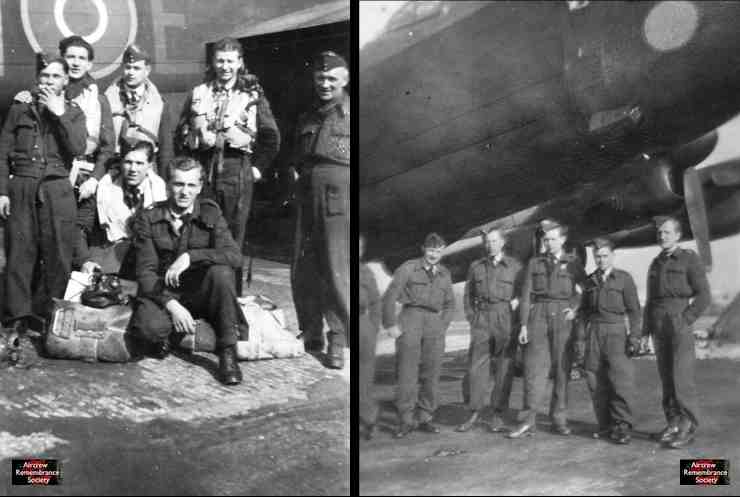
The beginning of World War II stopped his education. On 1st August Czeslaw spends his vacations in Tarnopol and as a student avoided mobilisation, but helped people to find anti- aircraft shelters and helped to find people who escaped from western Poland to find a home
Soon Tarnopol was conquered by The Red Army. In this situation Czeslaw decided to escape from Poland via Romania to France, where a Polish army was created. Unfortunately at the beginning of his escape, he was captured together with three friends by a Russian boundary patrol. 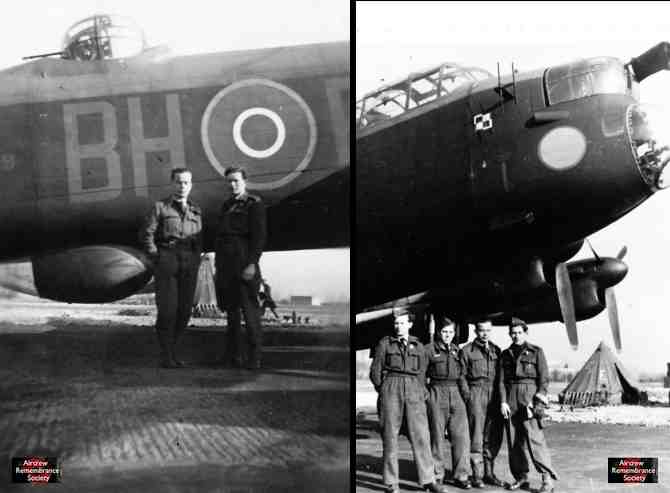
Between May and September Czeslaw was imprisoned in several jails. On October 1940 he was transported to Siberia to Moltowosk, where he participated in the digging of trenches. In July 1941 Czeslaw was transferred to another camp in Siberia, Workuta-Bolszaja Inta. In very tough weather conditions, with outside temperatures reaching -50 degrees Celsius, Czeslaw worked in the forest.
Based on the Sikorski – Majski agreement, from 30th July 1941 Polish soldiers including Czeslaw were released from camps. On 1st November 1941 he arrived at Buzuluk. where a Polish army was created. Due to not enough room for thousands of Polish soldiers, he was transferred to Koltubanka, where the future Polish Air Force and Navy was created. Then via Usbekistan, Turkmenistan, Iran, India and RSA he arrived at Glasgow on 6th July 1942.
As a potential pilot Czeslaw participated in several training missions including control of aircraft, but the decision of his supervisor was negative, due to too many rounds in spin made during a trial flight as only one round was requested by supervisor. 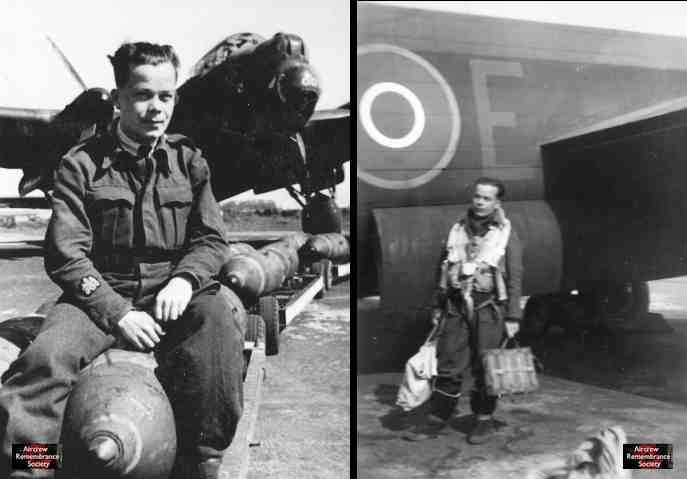
As with many soldiers in this situation he chose the Air Bomber position. On 6th September 1943 he left Blackpool and was sent to Canada, to participate in Air Bombing training, at which he graduated from on 28th January 1944. During his stay in Canada, Czeslaw used to meet in his free time, several Polish families, they warmly welcomed the Polish airman.
In October 1944 Czeslaw Eugeniusz Blicharski was transferred to the Heavy Conversion Unit, where he meet his crew: Pilot Tadeusz Wierzbowski, Navigator Jerzy Sikorski, Flight Engineer Hieronim Stawicki,Gunner Jan Krzewiński,, Gunner Stanisław Cwenar and Rear Gunner Jerzy Kołtonowski. The crew were posted to Faldingworth, where the famous 300th (polish) squadron was based. Equipped with heavy four-engined bombers Avro Lancaster. The 300th was the only non-english squadron to be supplied with Lancasters.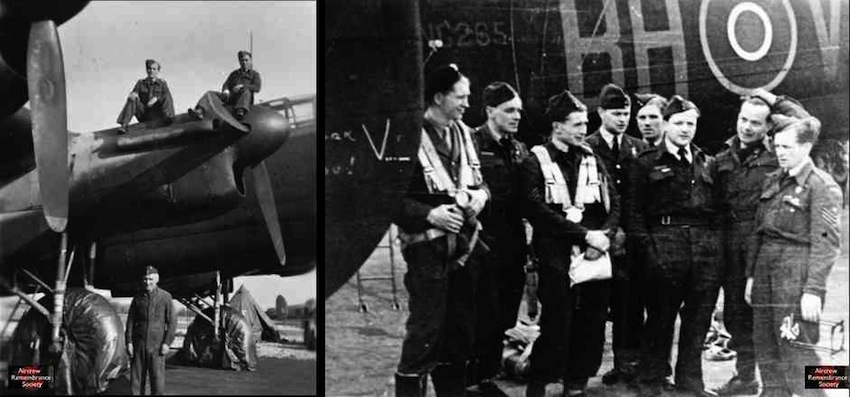
His first bombing raid was executed on 2 February 1945 on Wiesbaden, after that the following targets were attacked: Kleve, the famous Dresden raid in the night of 13/14th February 1945, Chemnitz (but due to Navigator’s illness they came back to England without taking part in the bombing raid); Pforzheim, Dortmund, Gelsenkirchen, Norymberga, Hanau, Bochum, A bridge in Bremen heavily defended by AA guns, Hannover, Paderborn, Kiel, Plauen and Hitler’s residence in Berchtesgaden, which was the last bombing raid in W.W.11 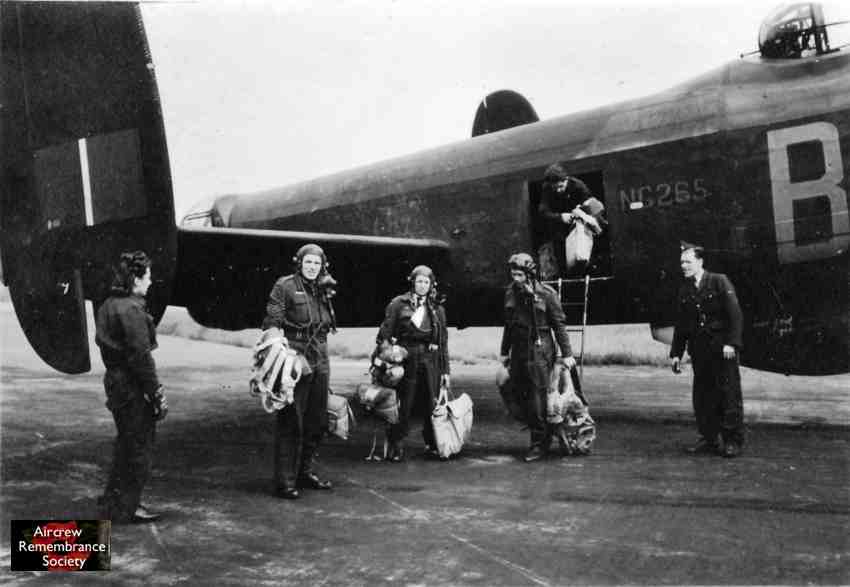
The flood in the Netherlands in May 1945 caused the Manna Operation: to drop supplies of food. Czeslaw participated in three flights, to Rotterdam and Gouda. Total number of flights in Czeslaw’s Log Book was 19.
After the war in June 1945 Czeslaw decided to study law at Oxford University, which he graduated from on 6th November 1945. On 17th December 1945 he returned to 300th sqn, where he stayed until it was disbanded in January 1947.
During service in 300th sqn Czeslaw together with Roman Golicz, Rear Gunner of Andrzej Gorski’s crew created a Sergeant’s Mess named “Klub Szydercow” “Sneer’s Club” and was located on Faldingworth’s air base.
After the war the situation for polish soldiers got complicated and Czeslaw after several jobs in London decided to leave England and travelled to Argentina on 27th February 1949. In the beginning Czeslaw worked on house building, then in a textile factory called“Sudamtex”. Whilst learning Spanish, he become a worker in the office as a manager.
In August 1955 Czeslaw decided to come back to Poland where his girl still waited. On 10th February 1956 Czeslaw arrived by ship in Poland and stayed in Zabrze, South Poland. In the beginning he found a lot of trouble finding a job due to Communism in Poland. Also as a soldier from England he became an enemy, as did many Polish people in Western Europe. Only in 1972 Czeslaw found a good job at the Institute of Buildings in Katowice.
Still thinking about his home city Tarnopol, Czeslaw decided to retire and to start to research Tarnopols' history and people connected his home town. Together with his wife Czeslaw has written several books regarding Tarnopol and East Poland (Kresy Wschodnie) as well as created a biographic dictionary with over 12000 surnames. Blicharski’s family has collected over 2000 photos of Tarnopol, received over 5100 items of correspondence and up until 2004 they had welcomed a total of 1729 people to his home in Zabrze.
Czeslaw Blicharski still lives in Zabrze, researching information regarding his home city Tarnopol.
Article especially prepared for the Aircrew Remembrance Society by Karol Kubiak
English translation checked and verified by Barry Howard (Spixworthian Language Institute) Who kindly donated his time to the A.R. Society.
